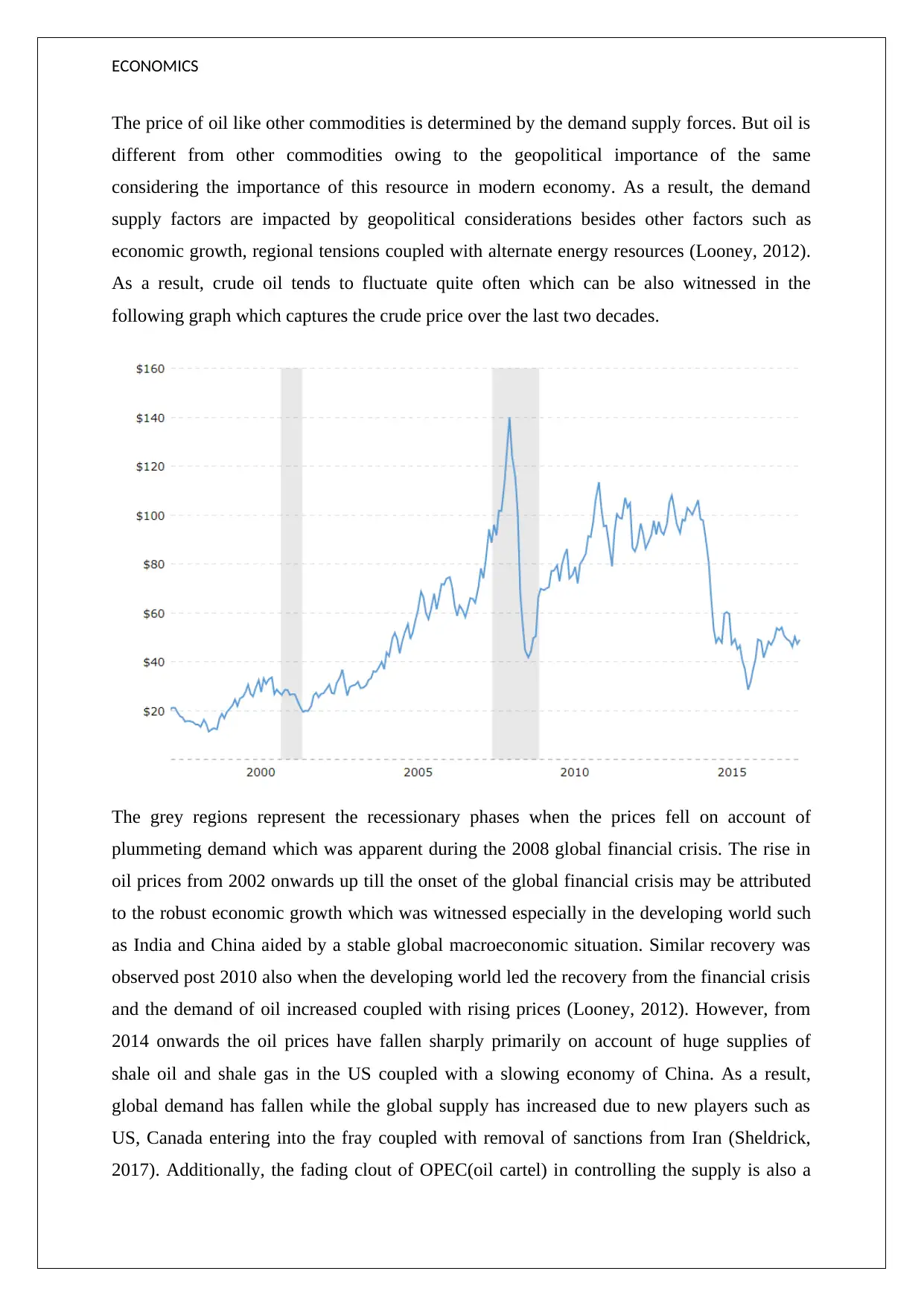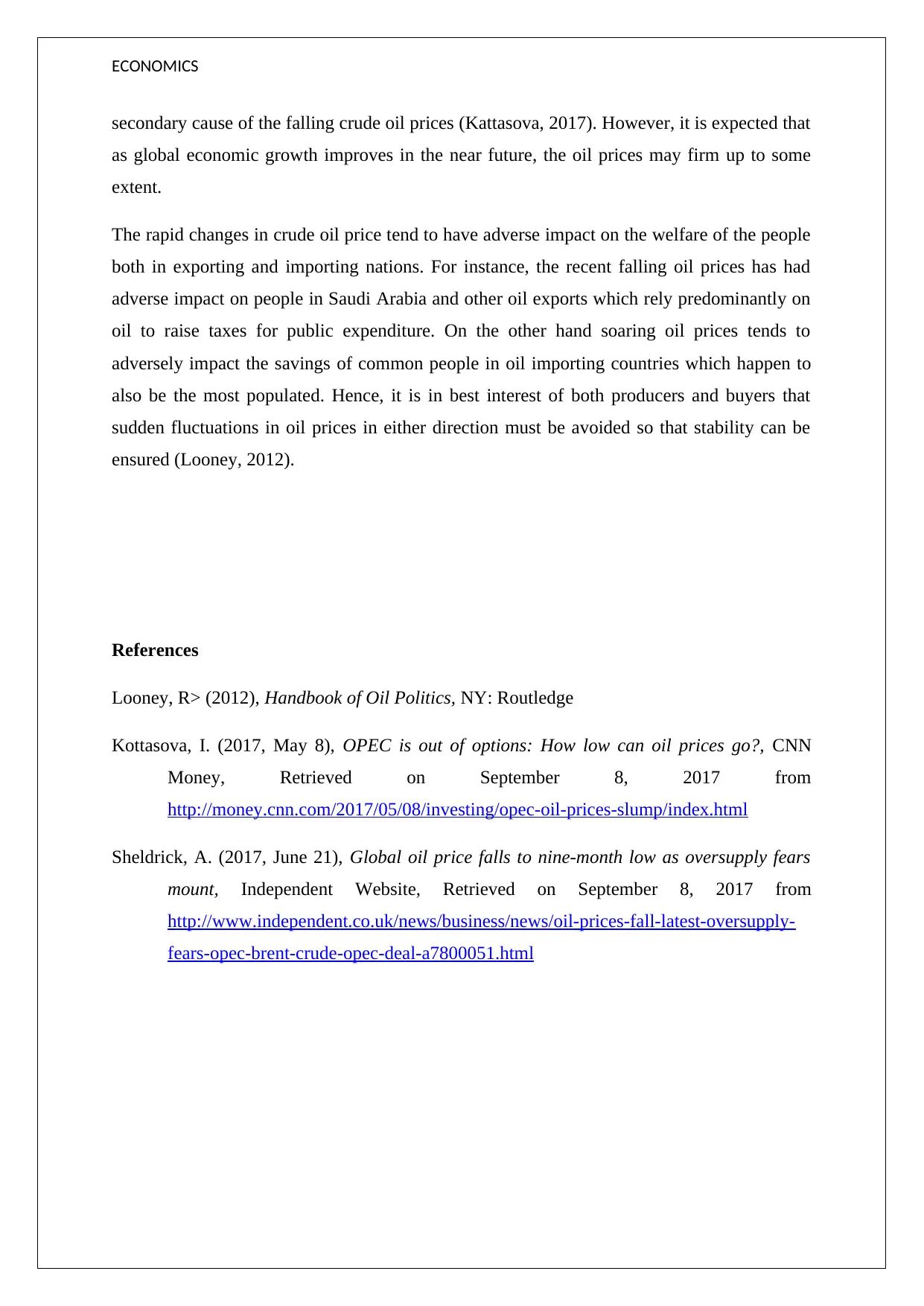The Economics of Oil: Analysis of Price Fluctuations and Impact
VerifiedAdded on 2019/11/12
|2
|558
|170
Report
AI Summary
This report delves into the intricacies of oil price fluctuations, examining the interplay of supply and demand dynamics alongside geopolitical considerations. The analysis highlights the impact of economic growth, regional tensions, and the emergence of alternative energy sources on crude oil prices. The report traces the historical trends, including the rise and fall of oil prices, linking them to events such as the 2008 financial crisis, the growth of developing economies, and the recent surge in shale oil production. The report also discusses the fading influence of OPEC and the impact of these fluctuations on both oil-exporting and oil-importing nations, emphasizing the need for price stability to protect both producers and consumers. The report concludes by emphasizing the importance of considering oil price dynamics within a broader economic and geopolitical framework, offering valuable insights into the complexities of the global energy market.
1 out of 2








![[object Object]](/_next/static/media/star-bottom.7253800d.svg)